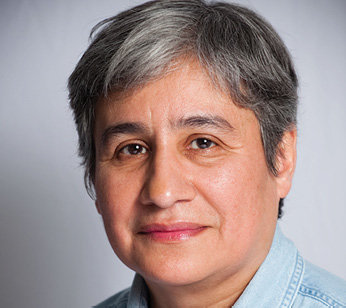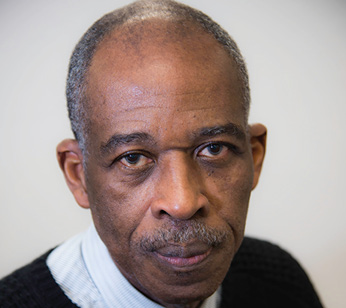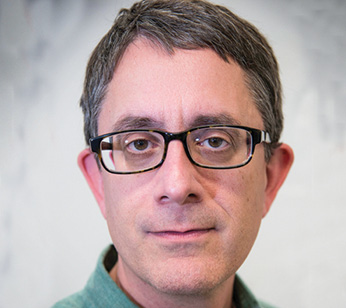Public Employee Press
Meet your new union vice presidents
Union delegates — voting at their monthly meeting on Nov. 28 — chose three local presidents to fill vacant seats on the DC 37 Executive Board. The winners were United Federation of Nurses and Epidemiologists Local 436 President Judith Arroyo, Health Services Employees Local 768 President Fitz Reid and Queens Library Guild Local 1321 President John Hyslop. Here, they share their backgrounds, vision and experiences as union activists.

Local 436 has more than 1,000 active members who are Public Health Nurses, Nurse Practitioners, Pediatric Nurse Associates and Public Health Epidemiologists in the Dept. of Health and Mental Hygiene and NYC Health and Hospitals. They protect the health of New York City and are part of the city’s emergency medical response teams at 9/11 shelters, and for anthrax, small pox, Ebola and Zika virus threats.
“Women represent almost half the membership and we need more women to step into leadership roles,” said Arroyo, who is a registered nurse and a U.S. military veteran. Arroyo believes “in the face of ultra-conservative challenges to workers’ rights — including the right to belong to a union — grassroots organizing, getting to know people and having conversations, is needed now more than ever to build and maintain strong unions.”
For almost a decade Judith Arroyo is on record as the largest single annual contributor to PEOPLE, the American Federation of State, County and Municipal Employees political fundraising program.
Arroyo said, “The more things change, the more they stay the same. The union tried the business model of the 1980s and ‘90s and has had to come full circle in its organizing techniques to reach members. In the 1940s, ‘50s and ‘60s unions talked one-on-one with members. Today we are back at it.”
“My members are always in the field. We talk to people and that gives us a better handle on what they are thinking,” Arroyo said. “We cannot afford to make assumptions or put people in a box.
We can’t afford to alienate any member whose views may be different than ours. As union leaders we cannot take any member for granted.” — Diane S. Williams

The new DC 37 vice president grew up in a progressive household in Jamaica, where his parents were involved in the Third World anti-colonial and independence movement.
As a young adult, Reid pursued his university studies at a time the island was going through economic, political and sometimes violent upheaval.
“The trade union movement is a leading voice in Jamaica,” said Reid, who pursued labor studies at the University of West Indies in Jamaica, in Guyana and at the Higher Institute of Trade Union Studies in the Soviet Union. “Prime ministers Bustamante, Shearer and Manley all were leaders of unions.”
Because of the political and economic instability in Jamaica, Reid decided to immigrate to the United States about 35 years ago. Continuing his studies, he earned a bachelor of arts degree in occupational and environmental science at Hunter College. Reid also earned a bachelor of science degree in labor studies and master’s degree in environmental and occupational sciences at SUNY Empire College. Twenty years ago, Reid started working at the Dept. of Health as a Public Health Sanitarian. He got involved in the union soon after his hiring. He has worked his way up from shop steward, executive vice president to president. He is now in his fourth term as president. As the leader of the local, he has focused on strengthening the shop steward network, exposing department failures in protecting the public health, alerting members about anti-worker internal investigations, fighting short-staffing, informing members about union benefits and educating activists about the challenges facing the labor movement. As an executive board member, Reid said he plans to support DC 37’s transformation from a serviced-based labor union to a more aggressive model of organizing and grassroots activism.
“The mission of the union is to improve the living standards of the working class and this requires continuous struggle,” Reid said.
“The labor laws are designed to control us, and the internal structure of unions tends to limit our actions,” Reid said. “The labor movement needs to remake itself in order to survive in the long term.” — Gregory N. Heires

He was hired by the Queens Library as an archivist for the Long Island Division, now known as the Archives at Queens Library.
Hyslop was immediately active in the union and became a DC 37 delegate in 1998. Hyslop rose quickly through the union ranks, becoming the librarian rep in 2000, vice president for librarians in 2001. The following year, he was elected executive vice president, serving in that capacity until 2010, when he was elected president of Local 1321. Under Hyslop’s leadership, Local 1321 scored a number of victories. The local successfully negotiated a new bargaining agreement, replacing an outdated contract from 1999. In 2014, it won back the jobs of library workers laid-off in 2010. The local also stopped Queens Library from contracting out security guards and custodians, and organized non-union staff, eventually adding 100 new union members.
The local also played a key role in the firing of former Queens Library President and CEO Thomas Galante, whose lavish spending habits led to his ouster in December 2014.
“We must work to ensure that our members understand the power of the union,” Hyslop said.
“Working together in solidarity is the only way to protect our rights, our wages and benefits,” he said. Knowing the history of DC 37 is important: the only reason why we have a 35-hour work week is because our predecessors formed the union. Struggling against higher powers, we fought for our health benefits and the preservation of our pension. We want to make sure that past is not forgotten.”
This year, John’s keen interest in preserving the history of the union movement culminated in the forming of the DC 37 Archives Committee, which has moved quickly to collect materials pertaining to DC 37’s storied history and interviews with key players in the growth of public worker unionism in the last 60 years. — Mike Lee


